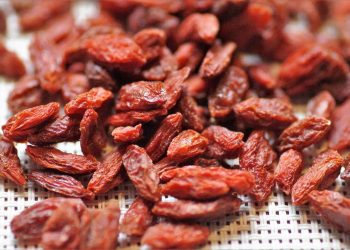Have you ever considered how your diet affects your eyesight? It’s a common misconception that eye health is solely about genetics or age. In reality, what you eat plays a significant role in maintaining clear vision and preventing eye diseases. Let’s take a closer look at five delicious foods that can help you boost your eye health naturally.
Contents
1. Carrots: The Classic Eye Food
You’ve probably heard that carrots are good for your eyes, and there’s some truth to that old adage. Carrots are rich in beta-carotene, which your body converts into vitamin A. This vitamin is essential for maintaining good vision, particularly in low-light conditions.
Nutritional Benefits
- Beta-Carotene: A powerful antioxidant that helps protect the eyes from oxidative stress.
- Lutein and Zeaxanthin: These carotenoids are also found in carrots and contribute to reducing the risk of age-related macular degeneration (AMD).
Pros and Cons
While munching on carrots is beneficial, they shouldn’t be your only source of eye health nutrients. A varied diet is crucial. Too much beta-carotene can lead to skin discoloration, but it’s generally safe in moderation.
Personal Insight
I often toss shredded carrots into salads or smoothies. It’s a simple way to incorporate this eye-friendly food into my meals without much fuss.
2. Spinach: The Leafy Green Powerhouse
Spinach is another powerhouse when it comes to eye health. This leafy green is loaded with lutein and zeaxanthin, similar to carrots, and is also rich in vitamins C and E, both of which are antioxidants that protect your eyes.
Nutritional Benefits
- Lutein and Zeaxanthin: These antioxidants help filter harmful blue light and protect the retina.
- Vitamins C and E: Help in reducing the risk of cataracts and AMD.
Pros and Cons
While spinach is incredibly nutritious, it can also be high in oxalates, which can interfere with calcium absorption. Cooking spinach can reduce oxalate levels, making the nutrients more bioavailable.
Tip
I love adding spinach to my morning omelets or blending it into smoothies. It’s an easy way to get a hefty dose of nutrients without sacrificing flavor.
3. Fish: The Omega-3 Fatty Acid Source
Fatty fish like salmon, mackerel, and sardines are excellent for eye health, primarily due to their high levels of omega-3 fatty acids. These healthy fats are crucial for maintaining the structural integrity of retinal cells.
Nutritional Benefits
- Omega-3 Fatty Acids: Help prevent dry eye syndrome and may reduce the risk of AMD.
- Vitamin D: Found in fatty fish, it’s essential for overall eye health.
Pros and Cons
While fish is incredibly beneficial, it’s essential to choose sustainably sourced options to avoid the risk of heavy metals like mercury.
Personal Observation
I’ve started meal prepping salmon fillets for the week. They’re easy to cook and pair well with various sides, making for a nutritious meal that’s also good for my eyes!
4. Eggs: A Nutrient-Dense Snack
Eggs are often overlooked in discussions about eye health, but they’re a fantastic source of nutrients that support your vision. They contain lutein, zeaxanthin, vitamin A, and zinc—all essential for eye health.
Nutritional Benefits
- Lutein and Zeaxanthin: Protect the eyes from harmful light and oxidative damage.
- Zinc: Plays a crucial role in maintaining the health of the retina.
Pros and Cons
While eggs are a great source of protein and nutrients, they do contain cholesterol. Moderation is key, especially for those concerned about heart health.
Creative Uses
I love making egg muffins with veggies for a grab-and-go breakfast. It’s a delicious way to pack in nutrients that are good for my eyes!
5. Blueberries: The Antioxidant Superstars
Blueberries are not just delicious; they’re also packed with antioxidants that are great for eye health. They contain vitamins C and E, as well as a range of phytochemicals that can help protect the eyes from oxidative stress.
Nutritional Benefits
- Antioxidants: Help reduce the risk of cataracts and AMD.
- Vitamin C: Supports the health of blood vessels in the eyes.
Pros and Cons
While blueberries are low in calories and high in nutrients, it’s best to consume them fresh or frozen rather than in sugary products, which can negate their benefits.
Simple Snack Idea
I often keep a container of fresh blueberries in my fridge for a quick, healthy snack. They’re sweet, satisfying, and incredibly good for my eyes!
FAQs
Q1: Can I get enough eye health nutrients from my diet alone?
Yes, a balanced diet rich in fruits, vegetables, and healthy fats can provide the necessary nutrients for eye health. However, consult a healthcare provider if you have specific concerns.
Q2: How often should I eat these foods for optimal eye health?
Incorporate a variety of these foods into your diet regularly. Aim for at least a few servings of leafy greens, fatty fish, and colorful fruits each week.
Q3: Are there any supplements I should consider?
While whole foods are the best source of nutrients, some people may benefit from supplements, especially if they have dietary restrictions. Always consult a healthcare provider before starting any new supplement regimen.
Q4: What about other lifestyle factors that affect eye health?
In addition to a healthy diet, factors such as regular eye check-ups, protecting your eyes from UV light, and managing screen time are crucial for maintaining good eye health.
Conclusion
Maintaining eye health is more than just a matter of genetics or age; it’s about what you put on your plate. By incorporating these five delicious foods into your diet, you can give your eyes the nutrients they need to thrive. And let’s be real—eating healthy doesn’t have to be boring. With a little creativity, you can enjoy meals that are both tasty and beneficial for your vision.
Remember, research is ongoing, and while the benefits of these foods are promising, it’s essential to consult with a healthcare provider for personalized advice.
Disclaimer: This article is for educational purposes only and is not a substitute for professional medical advice. Always consult a qualified healthcare provider before making changes to your health routine.
References
- S. B. D. (2017). Dietary Antioxidants and Eye Health. Clinical Ophthalmology. Retrieved from https://www.ncbi.nlm.nih.gov/pmc/articles/PMC5260058/
- G. M. (2019). Nutrition and Eye Health. Mayo Clinic. Retrieved from https://www.mayoclinic.org/healthy-lifestyle/nutrition-and-healthy-eating/in-depth/nutrition-and-eye-health/art-20459642
- J. H. (2020). The Role of Omega-3 Fatty Acids in Eye Health. Harvard Health Publishing. Retrieved from https://www.health.harvard.edu/staying-healthy/the-role-of-omega-3-fatty-acids-in-eye-health
Get Your FREE Natural Health Guide!
Subscribe now and receive our exclusive ebook packed with natural health tips, practical wellness advice, and easy lifestyle changes — delivered straight to your inbox.














